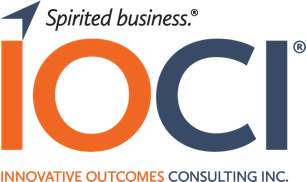The trend in corporate America to get women into the C-suite to date has been to raise awareness that our workplaces do, indeed, have women in them and pressuring HR to take advantage of that fact.
But according to the Global Leadership Forecast for 2018, published by Development Dimensions International, The Conference Board and EY, a survey of more than 25,000 HR professionals revealed the real keys a company should use to achieve this balance:
- Fair and objective talent review processes.
- Data-driven hiring and promotion decisions.
- Formal mentoring programs.
- High-quality development plans.
- Ongoing performance discussions.
But wait—that has nothing to do with gender, you say. Which is the point, of course. A successful leadership atmosphere is not male or female, and yet women account for just 6 percent of CEOs of Fortune 500 companies. The missing ingredient, says Tacy M. Byham, Ph.D., CEO of leadership company DDI, is support for women to develop the confidence to lead.
In a nutshell, women don’t think they’re ready for promotions, they predict they’ll do poorly on projects and, in general, underestimate their skills. This disparity between men’s and women’s self-assessments stems from both nature and childhood nurturing, the two areas a business has the least control over. But that doesn’t mean your company atmosphere isn’t off the hook.
“[Women] leave school crammed full of interesting historical facts and elegant Spanish subjunctives, proud of their ability to study hard and get the best grades, and determined to please, “ say Katty Kay and Claire Shipman, authors of The Confidence Code: The Science and Art of Self-Assurance—What Women Should Know. “But somewhere between the classroom and the cubicle, the rules change and they don’t realize it. They slam in to a work world that doesn’t reward them for perfect spelling and exquisite manners. The requirements for adult success are different, and their confidence takes a beating.”
The good news?
Science presents new evidence almost daily of the way brains change during a life span, spurred and nudged by changing thought patterns and behaviors. You could say the force is strong with your rising female leaders.
You could say the force is strong with your rising female leaders. #womenintheworkplace #emergingleaders Click To Tweet
The company line
Laura Guillen, an assistant professor of organizational behavior at ESMT Berlin, recently began diving into how organizational influence relates to confidence. Her findings have uncovered that colleagues perceive a woman as self-confident if she’s also warm, which at the office means how caring and prosocial she is. That, Guillen translates, means that men can focus on their own objectives and women are expected to care for (read help, champion, support) others in addition to carving their path.
And that’s why this researcher is pointing a finger at companies to make sure women are rewarded equally for their confidence and performance on the job. Here are specific actions she and others suggest:
- Be explicit with job requirements. If warmth is part of your culture, write those traits into the evaluations for men as well. As a bonus, in departments where women are scarce (ahem, perhaps your top floor?), specifying that teamwork, empathy and cheerleading are expected traits will attract female candidates to apply.
- Monitor promotions. Look specifically for instances where a woman scores well on technical skills but is not advancing in her career. It may be a case where her confidence is in fine shape, but this female doesn’t conform to expected gender roles.
- Spotlight a wider array of role models. What is the stereotype in your field? Perhaps it’s the IT geeky: intelligent but socially awkward. Look for employees who break that mold, and single them out for public praise.
- Help women build social capital. You want your leaders to anticipate problems and develop a vision. They can’t do that in a vacuum. Encourage situations outside of formal meetings where women can have conversations with senior leadership. Book clubs over breakfast and fitness classes at lunch are just two out-of-the-box ways to inspire personal connections.



